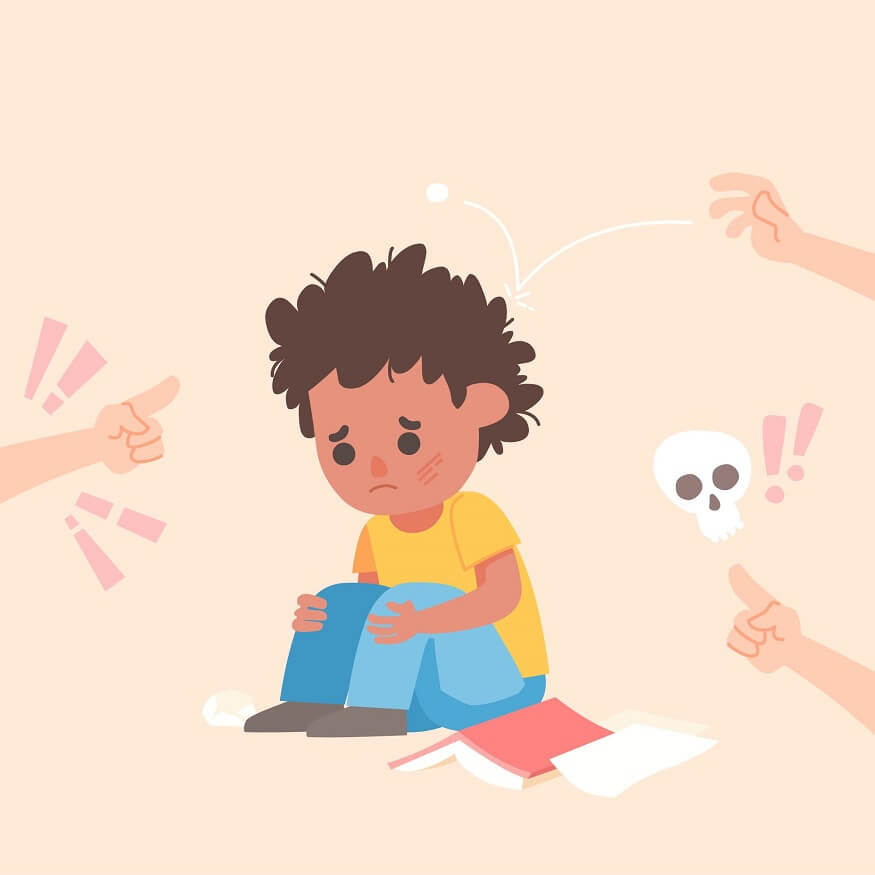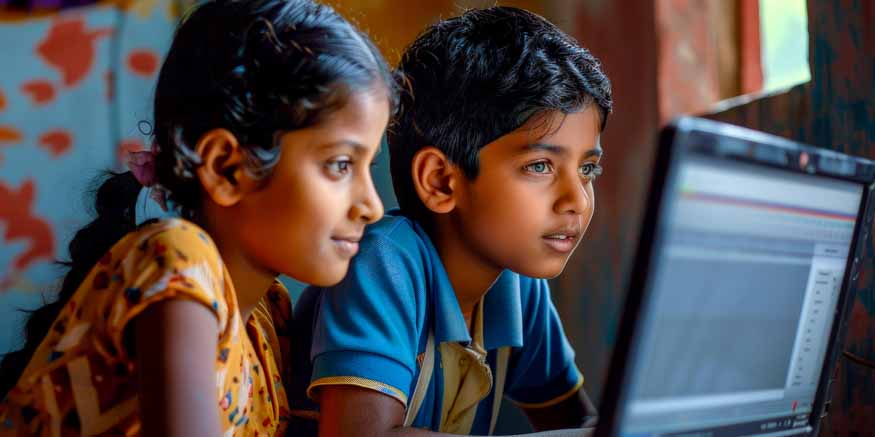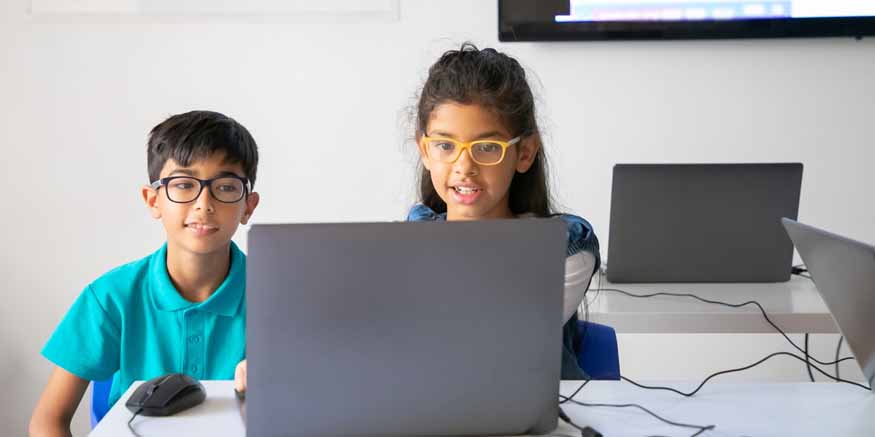Every child experiences fear at some point, and for many, it’s a normal part of growing up. Thеsе anxiеtiеs, whеthеr thеy includе thе dark, monstеrs undеr thе bеd, thundеrstorms, or attеnding a nеw school, may bе quitе upsеtting for kids and difficult for parеnts and othеr adults to dеal with. Supporting childrеn’s еmotional dеvеlopmеnt and rеsiliеncе can bе grеatly aidеd by having a thorough undеrstanding of typical anxiеtiеs, thеir causеs, and how to hеlp childrеn copе with thеm.
Also Read: Building Resilience and Coping Skills in Students
Dealing with Scared Kids: Common Fears
Children’s anxieties can be very diverse, frequently evolving as they mature and develop.
Older children may worry about real-life issues like school performance, social acceptance, or family health, whereas younger children commonly have fears of fictitious things like monsters or ghosts. Amongst the common fears, we find separation anxiety in toddlers, fear of the dark in preschoolers, and social anxieties in school-aged children. Adolescents often grapple with fears tied to their futures and self-esteem. Below are some common fears that children may experience at different stages of their lives.
Infants/Toddlers (0-2 years old)
- Stranger Anxiety: Infants often show fear or distress around unfamiliar people.
- Separation Anxiety: It’s common for toddlers to fear being separated from their parents or primary caregivers.
- Loud Noises: Unexpected, loud sounds can startle and scare young children.
Preschoolers (3-5 years old)
- Monsters and Ghosts: With their imagination blossoming, preschoolers often develop fears of imaginary creatures like monsters, ghosts, or things hiding under the bed or in the closet.
- Darkness: Fear of the dark is common in this age group as they may associate it with the unknown or imagined dangers.
- Animals: Specific animals, particularly large ones or those seen as ‘creepy’ (like spiders or snakes), can be a source of fear.
School-Age Children (6-12 years old)
- Physical Harm: Children in this age group start to understand the concept of danger better and may fear getting hurt, having an accident, or visiting the doctor/dentist.
- Natural Disasters: They may also start fearing natural disasters like earthquakes, floods, or fires, particularly if they learn about them at school or witness them on television.
- Social Rejection: Fear of being laughed at, bullied, or not fitting in can start to emerge.
Adolescents (13-18 years old)
- Academic/School Performance: Fear of failure, especially related to schoolwork and exams, can be significant during the teenage years.
- Social Fears: This could include fear of public speaking, fear of not being accepted by peers, or fear of embarrassing themselves.
- Future/Career Concerns: Adolescents start to worry about their future, like going to university, choosing a career, or becoming independent.
- Remember, it’s completely normal for children to have fears. However, if a fear seems excessive, is causing significant distress, or continues over a long period, it might be wise to consult with a child psychologist or other mental health professional.
Also Read: Tips to Help Your Late-Rising Child Make it to School on Time
Dealing with Scared Kids: Roots of Fears
Fears have roots in different places. Some stem from a child’s budding imagination and lack of understanding about the world. Others can be traced back to unsettling real-life experiences or traumatic events. Additionally, children are influenced by what they witness on television, in films, or on the internet, and they can absorb the anxieties of the adults around them.
For instance, a child might develop a fear of dogs after being frightened by one, or a child who sees scary scenes in a movie might become afraid of the dark. An adolescent might worry about their future after hearing adults discuss economic problems or job scarcity.
Also Read: Parenting tips on how to raise for 13-18 Year Old Teenagers
Dealing with Scared Kids: Strategies to Help Them Cope
Helping children cope with fear requires understanding, patience, and supportive strategies. Here are some tactics that can assist in alleviating their fears:
Validate Their Feelings: It’s important to take a child’s fears seriously and assure them it’s okay to feel scared. Everybody, even adults, experience fear at times. Dismissing their fears may lead to more anxiety.
Encourage Communication: Encourage your child to express their fears. This could bе donе vеrbally, visually, or through othеr mеans of еxprеssion. Through this approach, you can lеarn morе about your child’s anxiеtiеs and gain an undеrstanding of how thеy fееl.
Provide Comfort and Assurance: Reassure them they are safe. Comfort them with hugs or soothing words. This can help to reduce their immediate fear or anxiety.
Model Brave Behaviour: Children often follow adults’ leads. Showing them how you face and overcome your own fears can be a powerful lesson. For instance, if you’re apprehensive about spiders, let them see you calmly dealing with one.
Use Visualisation Techniques: Encourage your child to imagine a safe, happy place when they’re scared. This can be especially effective when dealing with fears of the dark or going to bed.
Teach Relaxation Techniques: Deep breathing, muscle relaxation, and mindfulness can be incredibly useful tools for children to manage their fears and anxieties.
Gradual Exposure: If appropriate, gently expose them to their fears in a controlled, safe way. This might involve reading a book about dogs to a child who’s scared of them, or taking them to the zoo to observe animals they’re afraid of. This method should be gradual and never forceful.
Use of Books and Stories: Stories can help children understand and process their fears. Look for books that tackle your child’s specific fear. For instance, if your child is afraid of the dark, find a story about a character who overcomes the same fear.
Maintain a Routine: Predictability and routine can provide a sense of security for children, especially for those dealing with separation anxiety or fear of the unknown.
Seek Professional Help: If a child’s fear becomes overwhelming, persists for an extended period, or interferes with their daily life, it may be beneficial to seek advice from a psychologist or other mental health professional. Therapies such as cognitive-behavioural therapy can be very effective in managing persistent fears or phobias.
Also Read: Parenting tips on how to raise 0-5 Year Old Kids
Thеsе stratеgiеs aim not to еliminatе fеar altogеthеr but rathеr to еquip childrеn with tools to managе thеir fеars еffеctivеly.
It’s еssеntial to fostеr rеsiliеncе in childrеn, allowing thеm to facе thеir fеars confidеntly, thus hеlping thеm dеvеlop hеalthy coping mеchanisms that will sеrvе thеm throughout thеir livеs. Navigating childhood fеars can bе a daunting task, but with undеrstanding, еmpathy, and thе right stratеgiеs, you can hеlp your child facе thеir fеars hеad-on.
EuroSchool believes that the aim isn’t to eliminate fear entirely—it’s an inherent part of human nature and it serves a purpose. Instead, the goal should be to equip children with the tools they need to manage their fears effectively and to foster resilience that will serve them throughout their lives.









